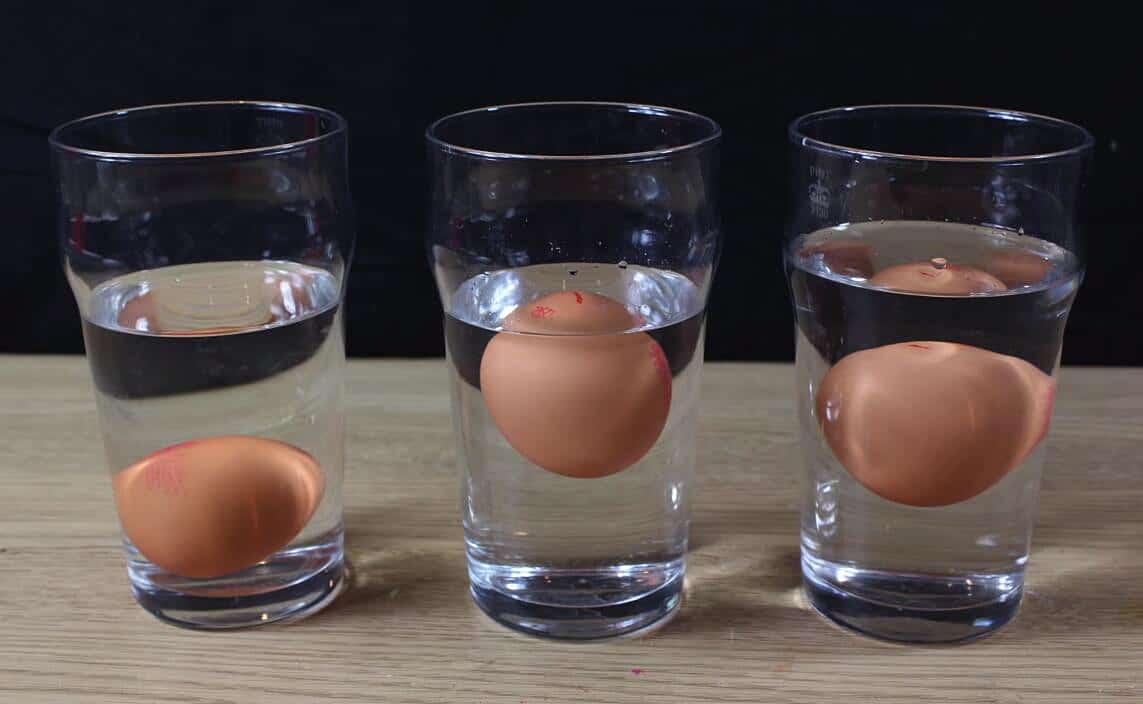The egg float test is used to determine the remaining amount of air inside the egg. If you raise chickens and they can free range, you may find eggs tucked under shrubs or settled into the long grass. An egg of uncertain age can be tested to see if it’s still fresh. Not every egg that floats is bad, but it is no longer fresh.
This article will cover
- What is the Egg Float Test?
- How Do I Do the Egg Float Test?
- Which End is Up? Cleanliness and Viability
- Healthy and Happy Chickens
- Risks of Eating Old Eggs
- Buying and Storing Farm Fresh Eggs
What is the Egg Float Test?
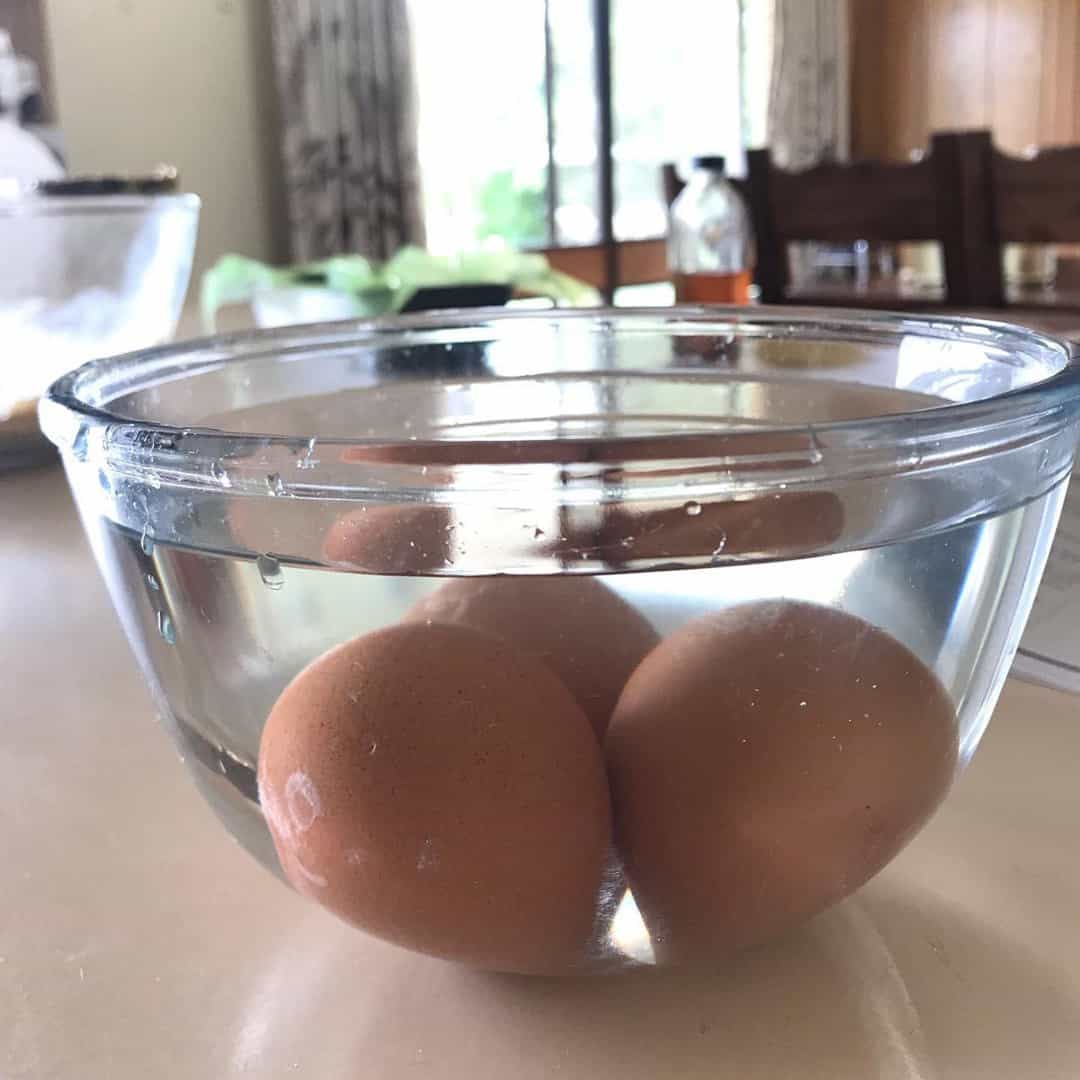
The egg float test is a simple way to check the age of an egg. All eggs have an air cell. As an egg age, that air cell becomes bigger. Once the egg gets to the right age and the air cell is big enough, the egg becomes buoyant. The air cell acts as a life preserver to keep the egg afloat.
It’s important to note that the egg float test is a way to check the age of an egg. Old eggs are still usable, but the use by date on eggs is important to monitor and act on. In fact, if you raise your own chickens, you may notice that very fresh eggs are delicious when scrambled or fried, but hard to peel when boiled.
There are many tricks to make it easier to peel a fresh egg recently boiled. For example, you can skip boiling and steam the eggs for 20 to 25 minutes to stabilize the egg white. Letting the egg age a bit can also help.
If you’ve done an egg float test and you think an egg is older, be aware that you can still crack it open to check for a rotten egg odor. If it smells bad, it is bad. It’s important to note that the smell of a rotten egg is extremely strong.
If you find an egg that floats and you want to test it, take it outside to crack it so you can more easily discard it without allowing the odor to escape inside your home.
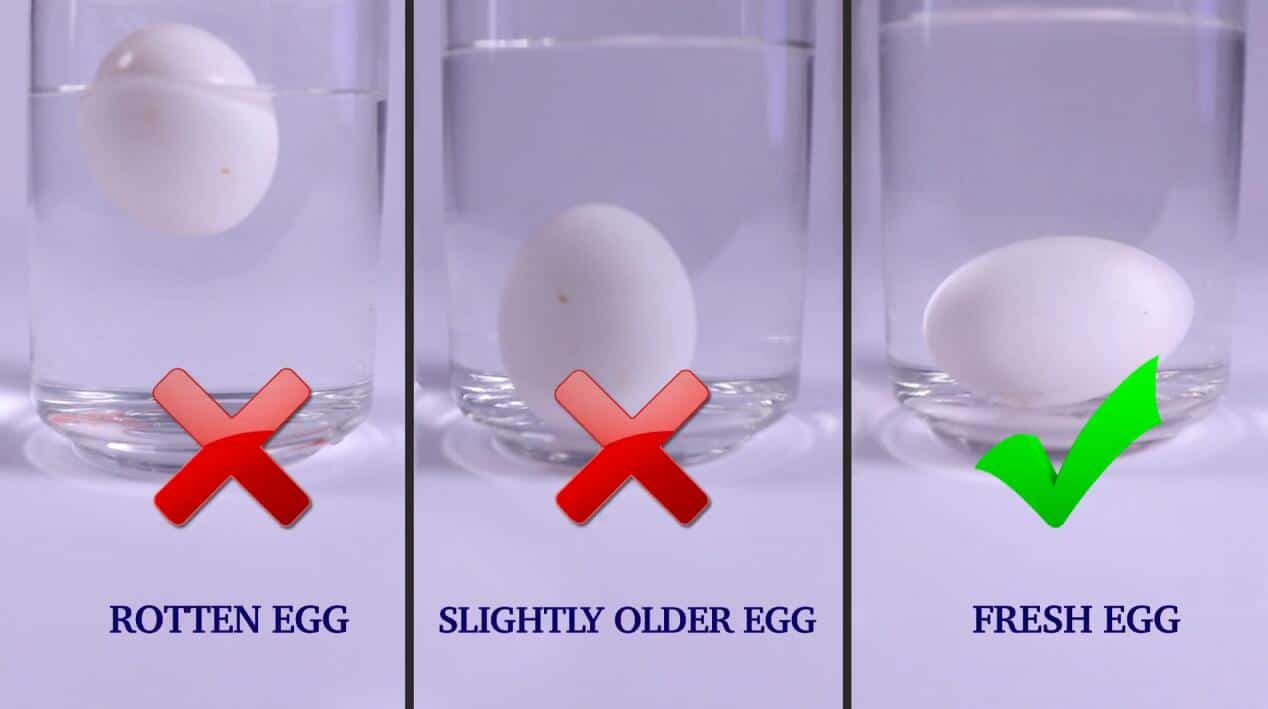
How Do I Do the Egg Float Test?
Use a bowl of cool water deep enough to fully submerge an egg, with a couple of inches to spare. Gently place the egg in the water. If the egg floats or bobs to the surface quickly, it’s old enough that it may be suspect. Carefully remove it and do your best not to break the shell.
Freshly laid eggs have an exterior coating, known as the bloom, that preserves the contents. While the egg float test uses water, it is unlikely to wash away this protective coating. Put them front and center in your refrigerator so you can use them soon.
If you raise your own chickens, be aware that the float test only measures the size of the air pocket and the relative age of the egg. For those who have a rooster on-site, fertilized eggs can prove tricky. Candling eggs is the best way to determine if an egg has been fertilized.
Don’t rely on the float test and crack open a fertilized egg. Candle eggs before you do the float test. ou don’t want to risk breaking an egg that’s been fertilized if you’re trying to raise your own chicks.
Some people suggest spinning an egg to check for freshness. This method is less dependable than the egg float test and increases the risk of breakage.
Which End is Up? Cleanliness and Viability
The air pocket in an egg will often flip to one end or the other when you put it in the water for the egg float test. If the egg floats, regardless of its orientation, it is older and needs to be used soon.
Be aware that eggs can still be good if they’ve sat out in the elements for a time. While it’s important to use the guidance of “use by” dates on your food, unfertilized eggs laid by a chicken out on a free range piece of ground can sit for days before they’re picked up and still be viable. Don’t be afraid to gather them and test them for freshness.
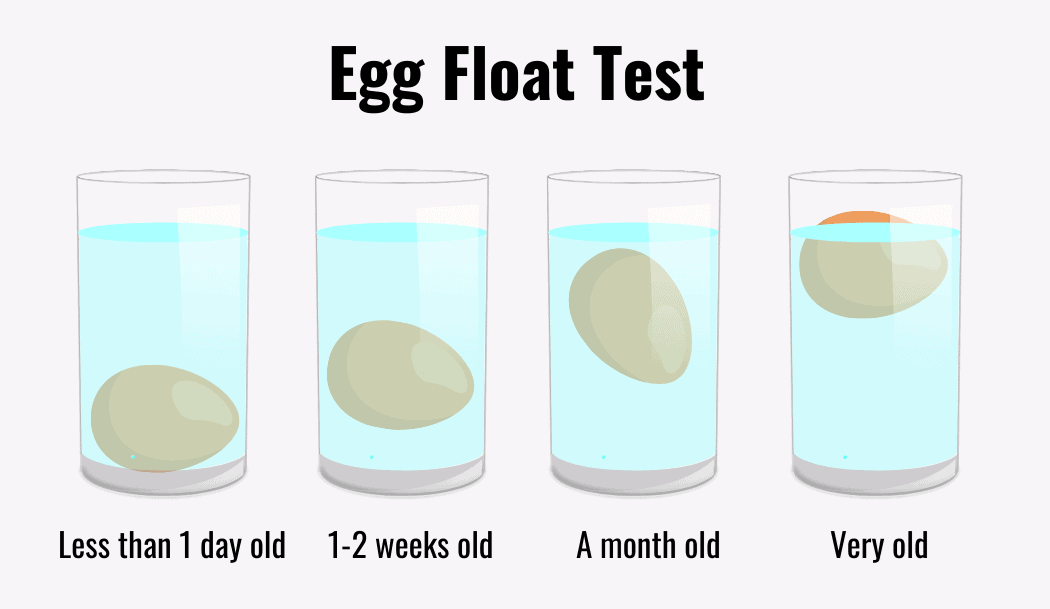
For those who raise their own chickens for the purpose of gathering eggs, remember that egg cleanliness starts in the laying box. If your chicken coop is clean and well-maintained, the eggs will be safely coated in the natural protection provided by the chicken in the laying process.
Chickens go to the bathroom when they sleep. Be prepared for the roosting bar or area of your coop to get very nasty. This will need to be cleaned regularly to avoid odor, rodents and insects. Airborne bird waste can be nasty and may even make you sick, so tend to this task with a long handled tool such as a hoe.
Dirty nesting boxes can actually encourage your chickens to lay outside the box. Carefully review the conditions of the laying boxes and remove any bedding that’s soiled. Apply fresh bedding as needed.
Healthy and Happy Chickens
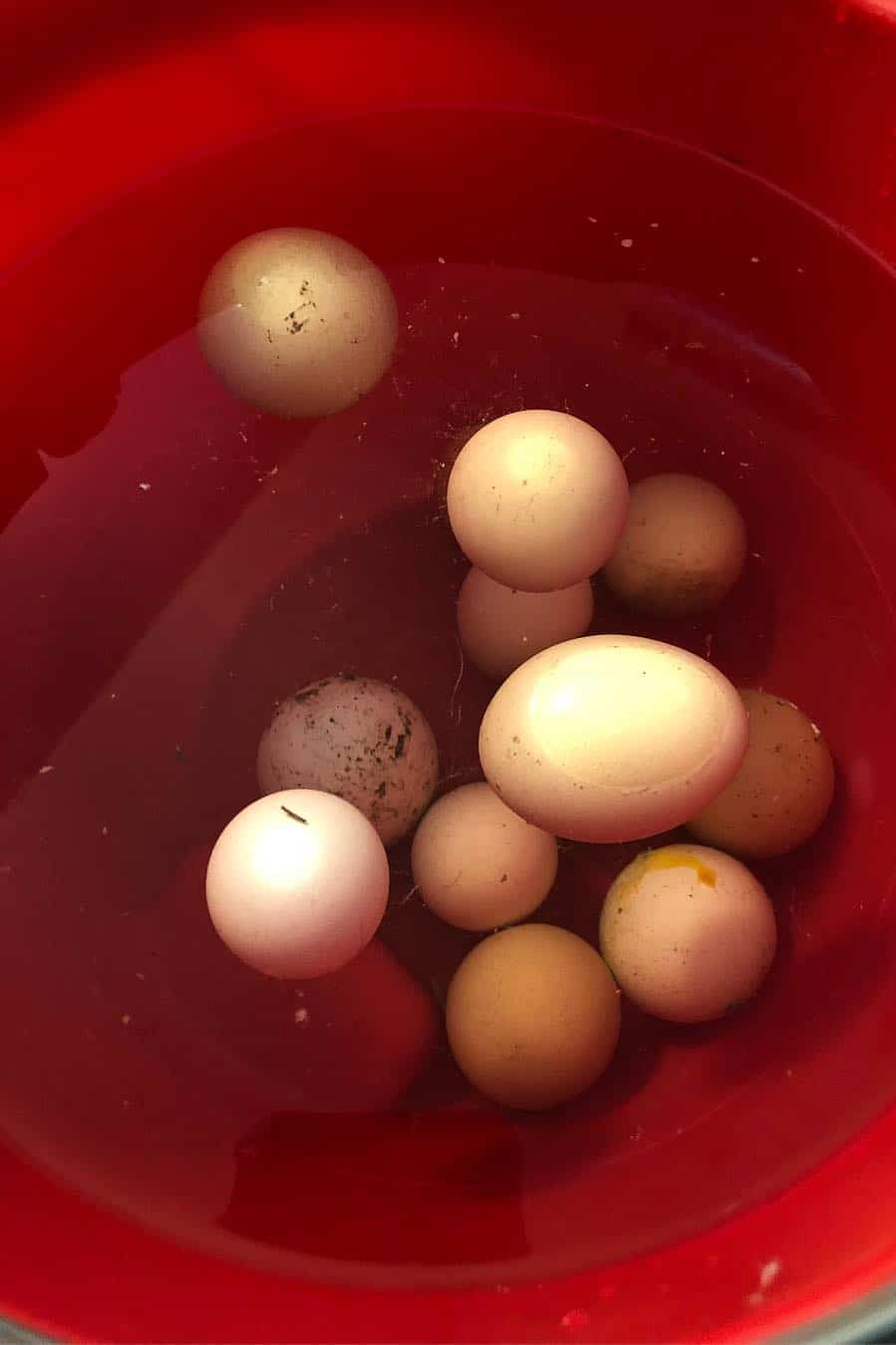
Eggs are developed and laid by the hen over the course of 25 hours. Carefully review the condition of the eggs as you collect them for any malformations or color variation. Shells with blood indicate that a young hen may be under stress, such as suffering bird lice.
If your coop is overcrowded or stressful, your chickens may lay oddly shaped or small eggs. If you find especially small eggs, make sure to do the egg float test as these may be empty. Additionally, sometimes an egg will break inside the chicken and her body will reinforce the break with additional calcium, leading to a banded egg.
Spotted eggs can be an indication of a poor diet. Monitor your chickens and eggs for signs of stress. If they’re overcrowded, they may turn on each other and fight. Once a hen has been injured, the other hens may attack and hurt her even further.
Make sure your hens have quality food, plenty of space and a regular amount of light in the winter. If your hens are constantly under stress and pressure, it’s a good idea to use the egg float test once a week to confirm the shells are hearty and forming healthily.
Risks of Eating Old Eggs
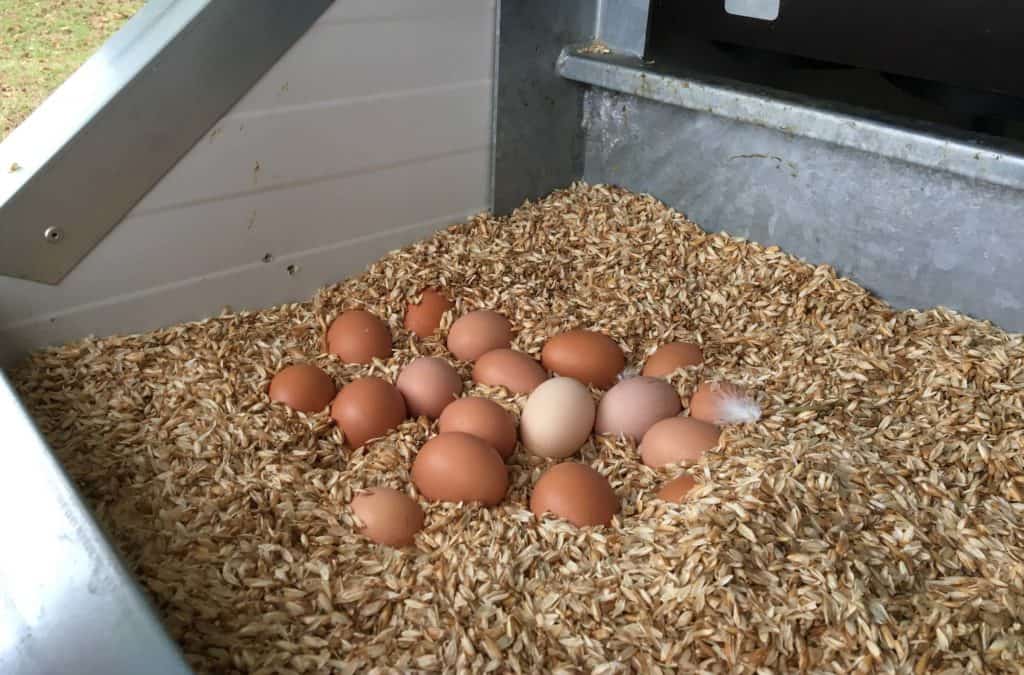
The egg float test can be used on store-bought as well as farm-fresh eggs. If your eggs from the store are close to the use by date stamped on the end of the carton, use the test. If they float, they’re old and maybe spoiled.
Before buying eggs at your local grocery store, carefully review the carton for any breaks. One cracked egg can become a breeding ground for a variety of bacteria. Salmonella is the most common cause of illness from eating undercooked or old eggs.
Salmonella is a bacterial infection that can produce anything from a flu-like infection to a deadly illness. You will likely suffer fever, diarrhea and vomiting. If the bacterial infection is severe enough, you may suffer organ failure and death. Not all eggs contain salmonella, but anyone who eats undercooked eggs is at risk for the bacteria.
When cooking with raw eggs, make sure to carefully wash all cooking utensils in hot, soapy water to avoid contamination. Don’t lick the bowl, the spoon or the beaters when making a sweet treat that includes eggs.
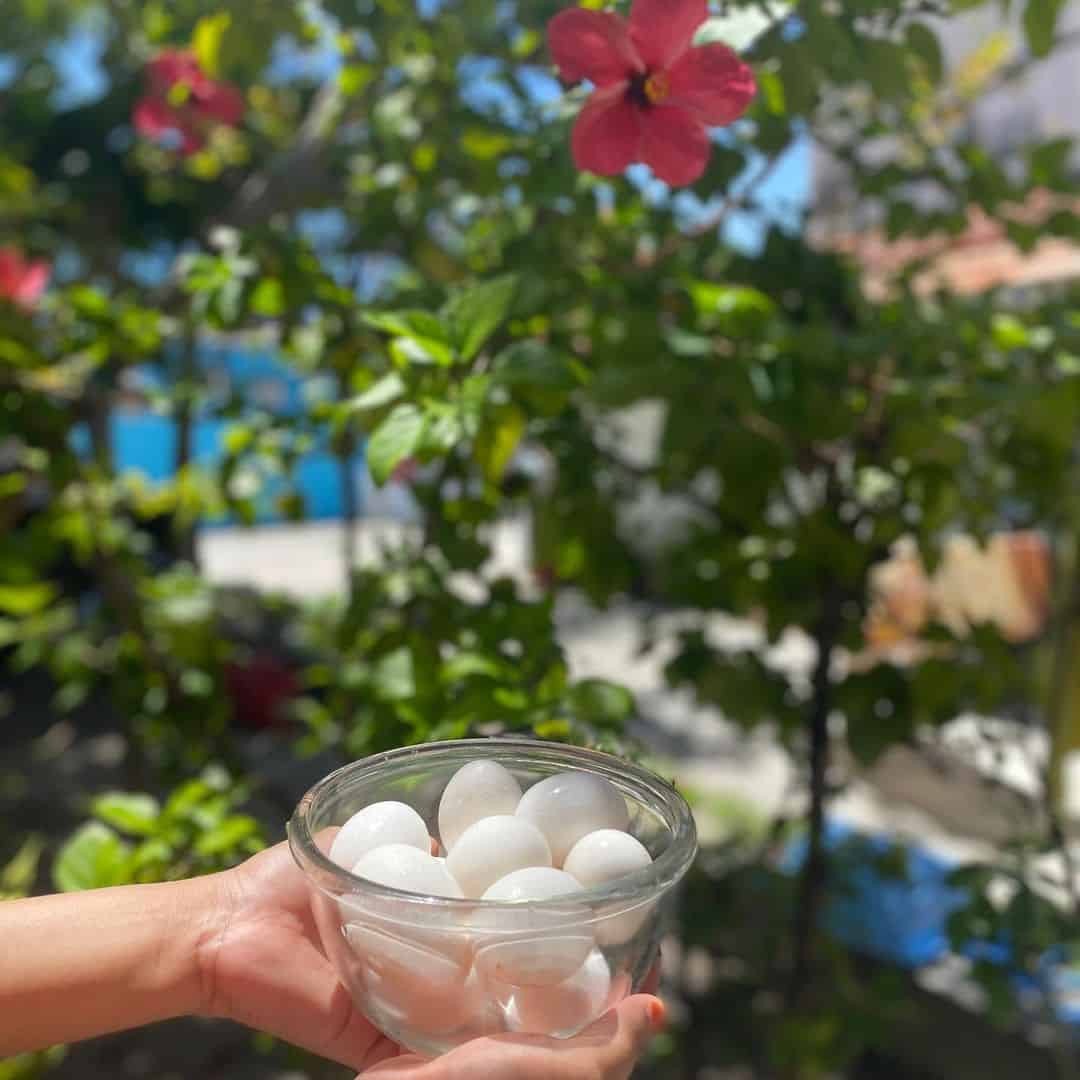
If your eggs are within the use by date but you notice:
- odor
- slime
- powder film (mold), or
- breaks in the shell
you may want to use the egg float test on the remaining eggs in the carton, but you’re safest to toss the container and buy another dozen. Carefully inspect all eggs in the carton when you purchase them. Also study the bottom of the carton for moisture as cracked eggs can leak and contaminate the container.
Many who contract salmonella poisoning will recover within a week. However, the elderly, those under the age of five and anyone with a weakened or stressed immune system can be made seriously ill by this bacteria. Avoid consuming raw eggs in any form to avoid this serious infection.
Buying and Storing Farm Fresh Eggs
If you have the chance to purchase farm-fresh eggs, try to get close to the hen coop. If you notice a strong odor of bird waste or see any sign of stress in the hens, avoid buying from this farmer. Chickens who are forced to lay eggs in filth generally aren’t in good health. Their eggs may or may not be healthy and the risk of food poisoning is just not worth it.
Those lucky enough to know a responsible hen owner, know that fresh eggs can be delicious and very tasty to bake with. Very fresh eggs will behave differently in the pan, as noted above.
When transporting and storing your eggs, try to keep the temperature consistent. If the farmer has refrigerated the eggs, transport them in an iced cooler. As eggs sweat, any bacteria on the shell will make good use of that moisture. Don’t let eggs come to room temperature unless you’re going to crack and cook them immediately.
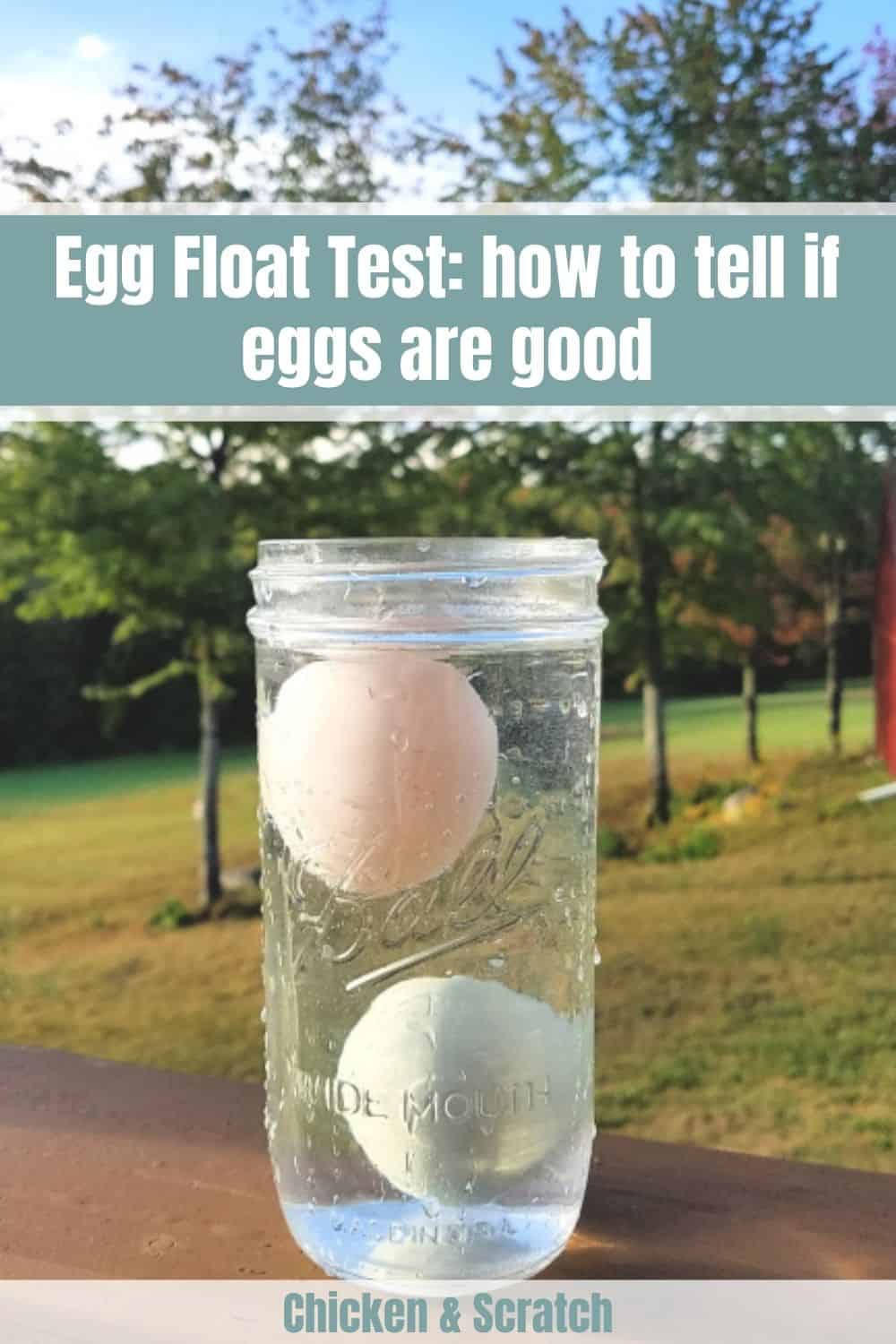

Joseph Hudson has been raising chickens for over 15 years. In 2018, he completed the Agriculture & Natural Resources program at Mt. San Antonio College. He currently raises over 1400 chickens on his 7.5-hectare farm. He keeps sharing his experience on raising healthy and happy chickens on Chicken Scratch The Foundry.
